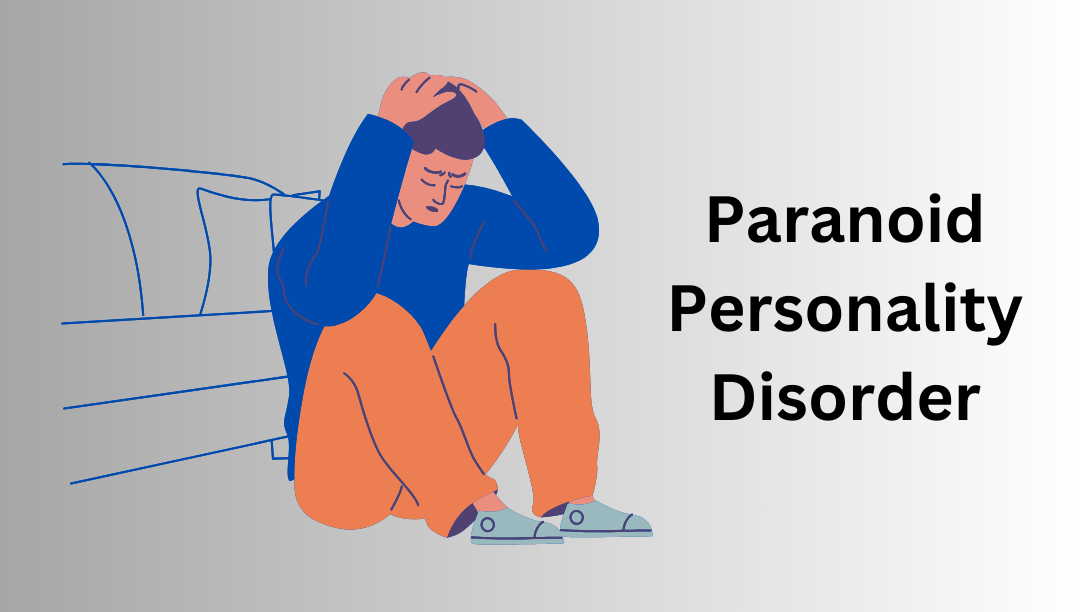Paranoid Personality disorder is basically Paranoia. Paranoia is a complex psychological phenomenon that captivates the human mind, evoking a range of emotions and behaviors. Paranoid Personality Disorder or PPD is characterized by the constant lack of faith and distrust in people. Suffering from PBD makes you think like everyone around you is suspicious and not worthy to trust. In simple words, being irrationally anxious or worried describes this personality disorder. People affected by PPD see others as a possible threat and that at any given moment people are ready to harm or humiliate them. That’s the reason people suffering from PPD don’t feel too comfortable in the company of others.
Paranoid personality disorder (PPD) is a mental health condition characterized by a persistent and ingrained behavioral pattern of unfounded mistrust and suspicion towards others, commonly referred to as paranoia. People diagnosed with PPD often have a strong conviction that people in their immediate vicinity are plotting to harm, undermine, or threaten them, which keeps them constantly on guard and afraid in their day-to-day interactions and relationships. his pervasive distrust can lead to significant challenges in forming and maintaining meaningful connections and can greatly impact their overall well-being and quality of life.
Individuals diagnosed with paranoid personality disorder frequently lack insight into the potential consequences of their behavior and tend to perceive their thoughts and actions as rational and justified, despite the concerns expressed by others.
PPD is one of a group of conditions called Cluster A, or eccentric personality disorders. People who are diagnosed with these diseases frequently display thought patterns and behaviors that are viewed as unusual or strange by the general public.
Signs/symptoms of Paranoid Personality Disorder
If you are affected by PPD then you might relate to the following symptoms:
- Having a hostile behavior towards others or being extremely stubborn.
- having trouble relaxing.
- Getting extremely affected by criticism.
- Being uncertain of other’s intentions even if they seem completely normal.
- Questioning others’ loyality.
- Being antisocial in some scenarios.
- Getting overly defensive about oneself for no apparent reason
- May believe that friends, family, and romantic partners are untrustworthy and unfaithful.
- Takes innocent remarks or situations that are not threatening as personal insults or attacks.
- Believes that others are trying to do harm with no reason to feel this way.
Causes
Scientists have yet to pinpoint the precise origins of paranoid personality disorder (PPD). However, current understanding suggests that its development is likely influenced by a complex interplay of environmental triggers and genetic predispositions, indicating a multifaceted etiology involving a combination of external and internal factors. Understanding the origins of being paranoid is crucial for unraveling its complexities. It can stem from various factors, including genetic predispositions, traumatic experiences, or even substance abuse.
Particularly in those with a family history of schizophrenia, the occurrence of PPD seems to be associated with a genetic predisposition, suggesting a possible genetic overlap between the two disorders. Moreover, it is proposed that early-life experiences, including episodes of physical or psychological trauma, may also have a substantial role in the development and course of PPD, indicating a complex etiology for this illness.
Paranoia, characterized by irrational suspicions and mistrust, manifests as an intense fear of harm or persecution. The term itself finds its roots in the Greek words “para,” meaning beyond, and “nous,” meaning mind. Thus, being paranoid is a condition where the mind goes beyond normal perceptions, often leading to distorted views of reality.
Can you live a normal life with paranoid personality disorder?
Although postpartum depression (PPD) can have damaging and disruptive effects, there is hope for those affected through effective treatment options. People with PPD, for instance, can live much better if they are in an intense residential mental health institution that offers individualized care and support based on each person’s particular needs. By focusing on the holistic well-being of the individual, such facilities empower individuals with PPD to lead more fulfilling and balanced lives.
What are the 3 types of personality disorders?
Cluster A: odd/eccentric
Cluster B: dramatic/erratic
Cluster C: anxious/inhibited
How do you treat a paranoid personality disorder?
Medications, such as anti-anxiety drugs or antipsychotic drugs, play a crucial role in easing some of the symptoms associated with mental health conditions. This type of treatment is prescribed based on individual needs and can significantly alleviate distress.
In addition to medications, therapy is another essential component in managing mental health. Through therapy, individuals can learn coping strategies and acquire valuable tools to navigate their symptoms effectively.
These coping skills are instrumental in enhancing social functioning and overall quality of life, aiming to empower individuals to lead fulfilling and meaningful lives.
